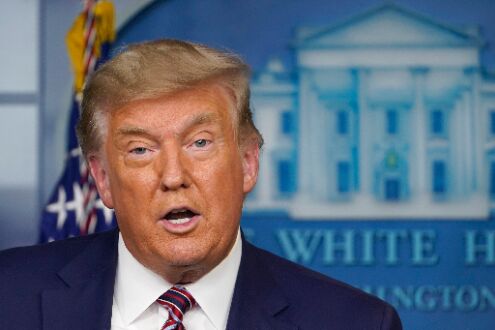Need to disengage

On January 15, 2021, Russia announced that it had kickstarted the required procedures to pull out of the Open Skies Treaty. This was done in response to Donald Trump pulling America out of the treaty early last year.
The treaty in question allowed its three dozen signatories to openly conduct reconnaissance flights over each other territories to collect military information. The treaty was designed as a way of fostering enhanced trust and reducing chances of escalations between the two Coldwar rivals. Trump's justification for pulling out of the 2002 treaty was simple. He claimed that Russia's continued violations of this treaty made it untenable for the US to remain in the treaty. Both Moscow and the EU had advised America to reconsider their position as withdrawal from the treaty by the two major powers are likely to have a significant impact on global security.
Coming at a time when the incoming Biden administration already has a full plate in regards to foreign relations fiascos that need resolution, it is easy enough to ignore the US-Russia situation. Indeed, the new major global rivalry that is spoken of is that of US and China, another serious issue that Biden must address. But it would be foolhardy to discount the value of improving US-Russia relations.
At this moment, it is safe to say that US-Russia relations aren't doing too well. Even before the current US administration and the alleged Russian hack of the DNC before the 2016 elections, Russia and the US had hit several snags in recent years that were firmly aggravated after US sanctions on Russia over the annexation of Crimea. US-Russia rivalry in many international theatres has now become a matter of fact, manifested in proxy conflicts between the two powers in arenas such as the Syrian civil war or Venezuela. Allegations over 2016 election interference and the subsequent Mueller investigation of the Trump campaigns Russia links did not help bring the two nations together. Indeed, even as Democratic lawmakers investigated the new administration for every possible Russia link with zeal unseen since the Coldwar days, Putin became an open critic of western democracy and the US in particular. Experts have stated that the erratic foreign policy of the Trump administration made it easier for its rivals such as Russia and China to gain diplomatic ground lost by the US as Trump prioritised a changeable 'America first' policy. But even if Trump unintentionally aided the cause of Russia from time to time, overall, his Presidency did not improve US-Russia relations despite his stated intentions of normalising the fraught relations of the two nations.
In recent times, a significant cause of concern has been the renewal of the New START Treaty on strategic offensive weapons. The treaty, among other things, limits the number of warheads and launch vehicles fielded by both Russia and the US while also allowing for on-site inspection for compliance. The treaty is set to expire on February 5, 2020, and as of now, there is no concrete plan for negotiating the next stage of the arms control treaty. While Russia called for an unconditional extension of the treaty, the Trump administration expressed interest in adding additional stipulations, the largest of which involves making China a signatory as well. It is hard to overstate just how important the treaty is at this stage. With both Russia and the US pulling out of the 1987 Intermediate-Range Nuclear Forces Treaty, the START Treaty is the only remaining treaty that limits the former rivals from starting a new nuclear arms race. Biden, for his part, has indicated that he is interested in an unconditional extension of the treaty as well though he will have to meet a tight deadline to do so. But the situation remains complicated. The US is increasingly concerned about growing Russia-China ties. Commentators state that both China and Russia have united as proponents of a post-US world where the US no longer reigns supreme. This shared interest is supported by an increasing show of multifaceted cooperation between the two nations in recent years. Biden can ill afford to ignore these growing ties even as he attempts normalisation with both nations. Inevitably, the future will bring more avenues of conflict. Its tensions with China aside, the US will likely have to confront the increasing militarisation of the Arctic by Russia as the melting ice opens a new resource-rich strategic zone.
But all sides must remember the wisdom gained at the end of US-Soviet tensions in the 1980s — that nuclear war is unacceptable and that the arms race can have no rational winner.




